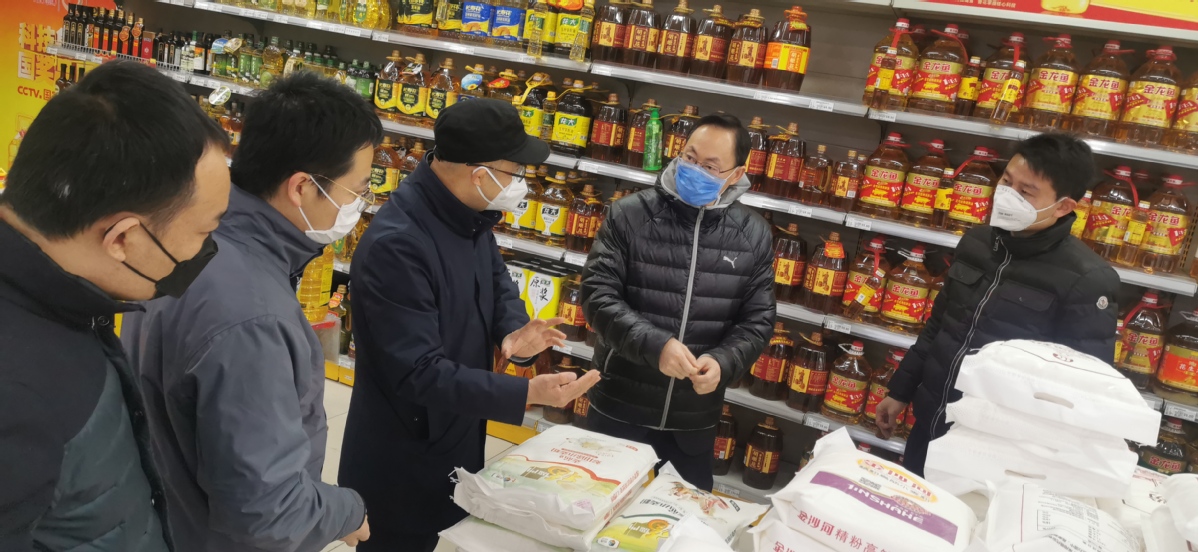Heart of business beats for world


State-owned enterprises, private firms contribute toward overall well-being and health of medical workers, society during the pandemic
COFCO, other SOEs show how corporates can help
COFCO Corp, China's largest foodstuff producer and grain trader by sales revenue, has left no stone unturned to strengthen the country's COVID-19 fight.
A senior COFCO executive said the company's global and domestic resources were mobilized to deliver urgently needed medical, food and other materials on time to ensure people's livelihoods were protected during the COVID-19 outbreak.
The Beijing-headquartered group said it has delivered a large amount of essential foodstuffs including vegetables, rice, edible oils and meat, to many places in Central China's Hubei province.
It also said it provided large quantities of ethanol for disinfection to virus-hit areas in almost 30 provinces, municipalities and autonomous regions nationwide after the epidemic began.
"COVID-19 has connected us and made us re-examine our responsibilities, both as individuals and as businesspeople," said Yu Xubo, president of the centrally-administrated State-owned enterprise.
He said many of the company's manufacturing plants had boosted their production volume to meet the rising market demand during the epidemic.
Owing to China's rapid urbanization and the development of advanced logistics systems, demand for essential supplies is highest in big Chinese cities, Yu said.
In the wake of public health emergencies, a temporary imbalance in demand and supply of grains and oil products in regional markets is to be expected.
Wuhan, Hubei's provincial capital that was hit the hardest during the epidemic, witnessed extremely high demand for certain foodstuffs. Flour and fine dried noodles reached consumption peaks this season, compared with previous Spring Festival holidays.
COFCO took immediate action and dispatched more than 200 metric tons of rice, 50 tons of flour and noodles, and 300 tons of edible oil to Hubei province every day during the extraordinary period.
The company also helped the local government units in tightening the supervision of retailers to prevent speculative trade in these commodities.
To better meet China's grain demand, the group has imported large quantities of soybean and corn from Argentina via its market network and business presence in South America.
To protect the supply chain from any adverse impacts, employees in attendance at one of the group's meat units in Wuhan-COFCO Meat Holdings Ltd-worked at full throttle to ensure supply of 27,000 packs of fresh meat each day. Less than 60 percent of its full staff were on duty during the period, Yu noted.
Before the outbreak, the factory was able to produce 20,000 packs at full capacity on a daily basis. The output had to be scaled up to 35,491 packs on Feb 4, a record for daily output.
Despite the epidemic, none of the company's staff present in the location ever took a day off, even during the Chinese Lunar New Year holiday in late January.
Following instructions from the State-owned Assets Supervision and Administration Commission of the State Council, COFCO teamed up with its peers such as China National Machinery Industry Corp, China COSCO Shipping Group and China Grain Reserves Group, to transport more goods to Hubei province and other parts of the country.
Such corporate help further enhanced the firm's ability to distribute goods, food and processed edible oil.
These actions are helpful for China to stabilize both people's livelihood and its supply chain to the global markets, because sufficient power supply, medical goods, stable trade flows and timely production of daily necessities and other living materials are key for China and the world to overcome the pandemic, said Wang Yong, director of the Center for International Political Economy at Peking University.































